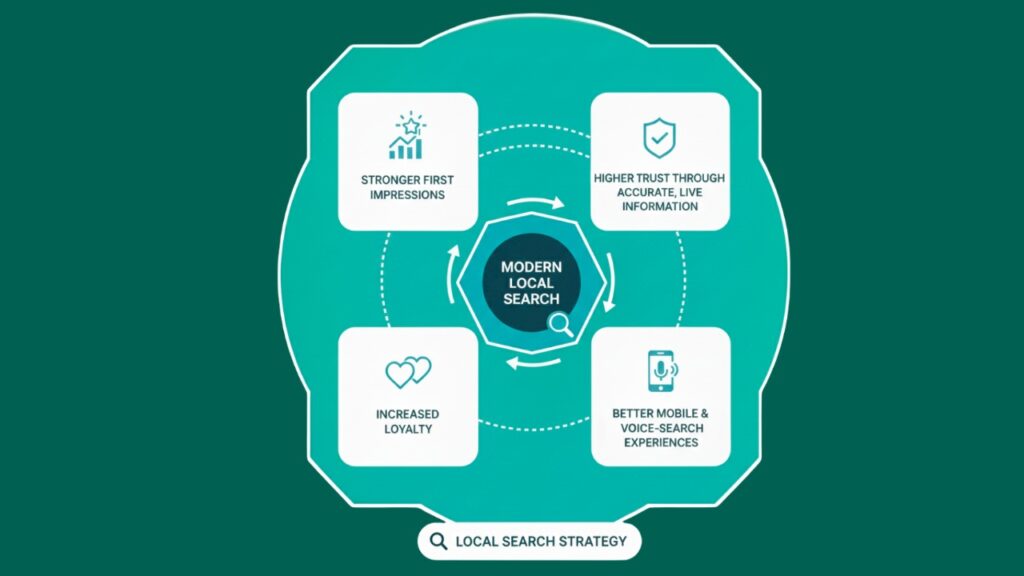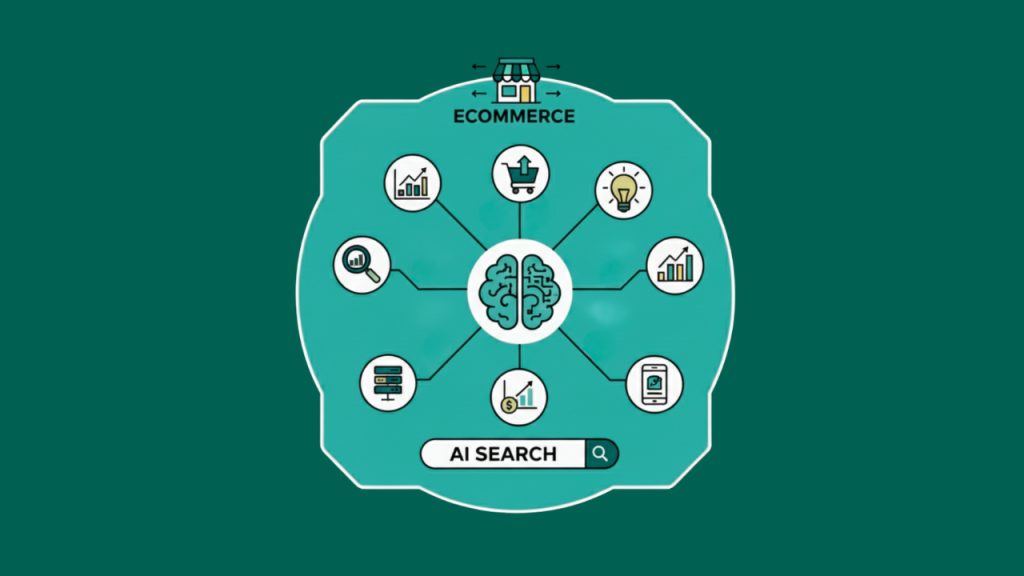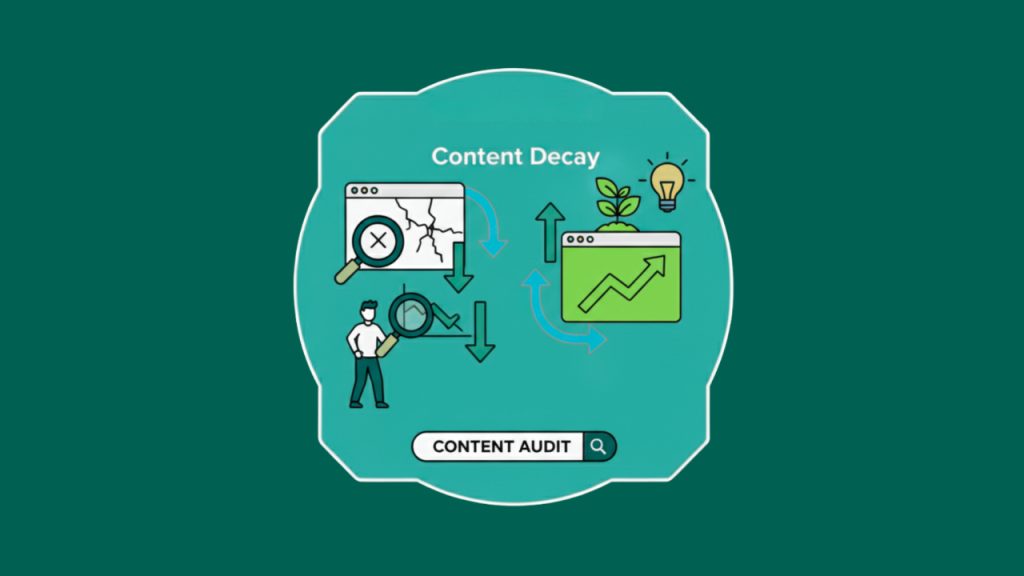In 2025, SEO is not about keywords and backlinks. It is about how artificial intelligence shapes the search behaviour. Traditional keyword-based SEO is not enough to get noticed. Search engines such as Google are AI-driven, NLP-driven, and generative model-driven now, capable of interpreting context, intent, and meaning. This implies that search is becoming conversational, personalised, and answer-oriented.
For UK companies, this is both an opportunity and a challenge. On the one side, AI-driven search reduces dependency on traditional ranking strategies. On the other side, it presents an opportunity for brands embracing depth, credibility, and human-like engagement. An effective AI-powered search SEO strategy is now crucial for visibility, clicks, and conversions. Companies that adapt will prosper. Those who disregard it will be losing themselves in digital darkness.
Table of Contents
What AI-Powered Search Really Means
AI-driven search employs learning algorithms, forecasting, and understanding human intention. Rather than keyword matching, engines such as Google scan the entire meaning of a query. They employ NLP and generative AI to provide responses that sound conversational.
For instance, if a user types, “What is the best remote team project management tool?”, Google no longer displays ten blue links. Instead, it produces an overview that captures summaries, reviews, and comparisons — nearly like advice from a human expert.
Why Businesses Can’t Afford to Ignore It
The effect on search visibility is huge. Google’s AI Overviews tend to show up ahead of organic listings, leaving websites fewer clicks. Companies that fail to comply risk being left behind.
AI search also prefers genuine, well-structured, and context-rich content. Brands that do not optimise may lose leads, conversions, and customer trust. In today’s era of fierce competition, neglecting AI search optimisation is no longer possible.
How AI Is Transforming Search Engines
Smarter Understanding of User Intent
AI looks beyond surface-level keywords. It examines intent: what the user is looking for. It considers location, device, and search history. That makes results more accurate and personalised.
For instance, a search such as “coffee shop near me” yields varying results for an individual in Manchester versus one in Birmingham.
Semantic Search and Entity Recognition
AI today identifies people, locations, organisations, and ideas as entities. The entities are interrelated, making search results more meaningful. Searching for “Shakespeare plays London theatres” relates the playwright, theatres, and productions.
This means businesses must structure their content around topics and relationships, rather than isolated keywords.
AI Overviews and Generative Results
AI-driven features such as Google’s SGE and AI Overviews now summarise answers on the SERP itself. It frequently quotes content-inclined sites or blog articles, but avoids transactional or thin pages. According to Semrush, over 13% of all Google results now include AI-based answer boxes.
New SEO Signals That Matter Most
Content Depth, Relevance, and Context
Thin content is not effective anymore. AI algorithms favour pages that provide in-depth answers to questions, give examples, and display obvious expertise. A brief blog full of keywords will not rank. Rather, clear yet thorough writing triumphs.
The Growing Importance of E-E-A-T
Experience, Expertise, Authority, and Trust (E-E-A-T) are currently important ranking factors. This is mainly for YMYL (Your Money, Your Life) topics such as finance, healthcare, and law. Companies are required to establish credibility via author credentials, citations, and clear information.
Structured Data and Rich Results
Schema markup is crucial in the AI era. It allows search engines to “read” your content, providing rich results such as FAQs, product listings, and featured snippets. This boosts click-through rates and visibility.
Mobile Experience and Page Speed
User experience still matters. Clunky, slow sites lose traffic quickly. Core Web Vitals — page speed, responsiveness, and stability — are now essential ranking signals. AI search engines include these in visibility decisions.
Strategies for Adapting Your SEO Approach
Optimise for Conversational and Voice Search
Voice and AI-driven search queries are longer and more human. Content must answer natural questions, with headings structured around likely spoken queries and detailed answers for conversational intent. Example: Rather than “best accountants London”, users will type “Who are the best accountants for small businesses in London?”
Focus on Long-Tail and Question-Based Queries
Long-tail keywords gather exact intent. They are also closer to the way people communicate. Content must contain FAQs, “how-to” instructions, and conversational language phrases. It becomes simpler to rank on conversational AI-powered searches.
Use AI-Driven Tools for Research and Optimisation
Surfer SEO, SEMrush AI, and Clearscope are tools that can examine intent, identify gaps, and suggest semantic keywords. These insights enable marketers to create content that ranks better on AI search.
Refresh Existing Content for Semantic Relevance
Previous content must be refreshed. Auditing old blogs and pages ensures that they are still relevant. Add structured data, enhance headings, and interlink related content. This enhances AI-readability and heightens the probabilities of showing up in AI Overviews.
Risks and Challenges in the AI SEO Era
The Pitfalls of Overusing AI-Generated Content
Dependence on AI writing tools alone can be counterproductive. Much of AI-generated material is generic, redundant, or incorrect. Thin or copied content can be penalised by Google, resulting in ranking losses.
Maintaining Trust, Accuracy, and Human Touch
The most profitable companies blend AI efficiency with human experience. Fact-checking, editing, and special insights create credibility. AI should augment content creation, not substitute for it.
Action Plan for Businesses
Quick SEO Checklist for AI-Powered Search
- Add structured data (FAQ, product, article schema).
- Improve mobile responsiveness and speed.
- Target long-tail, conversational queries.
- Refresh old content with semantic updates.
- Strengthen author profiles and E-E-A-T signals.
Building a Long-Term Strategy
AI in search will continue to evolve. Businesses must:
- Track SERP changes and AI features regularly.
- Invest in high-quality, context-rich content.
- Use AI tools to monitor and fill gaps.
- Conduct SEO audits every quarter.
The Future of SEO in an AI World: Why Adapting Now Ensures Competitive Advantage
AI is no longer the future; it is now. Companies that embrace today gain visibility, credibility, and trust. Those who wait risk disappearing from customer searches.
The future of AI-Powered search SEO strategy will reward brands that focus on quality, well-structured data, and human relevance. For UK mid-to-high-end companies, this is an opportunity to lead, not to follow. Embrace now, and you won’t merely get through AI search; you’ll succeed in it.
At Midland Marketing, we assist companies to remain in front of these shifts with clean, efficient SEO techniques developed for the age of AI. Our mission is simple: to ensure that your brand gets discovered, trusted, and selected.
Speak with us to know how AI-powered strategies can boost your brand visibility.
Frequently Asked Questions (FAQs)
1. What is an AI-powered search SEO strategy?
It is an approach that optimises content for AI-driven search engines. Instead of focusing only on keywords, it prioritises intent, semantic relevance, structured data, and E-E-A-T signals.
2. How is AI changing SEO?
AI transforms SEO into intent, context, and conversation. Functionality such as Google’s AI Overviews and semantic search favours depth, correctness, and user value over keyword frequency.
3. Why does structured data matter in AI search?
Structured data helps AI understand content. It increases chances of appearing in rich snippets, FAQs, and AI Overviews.












